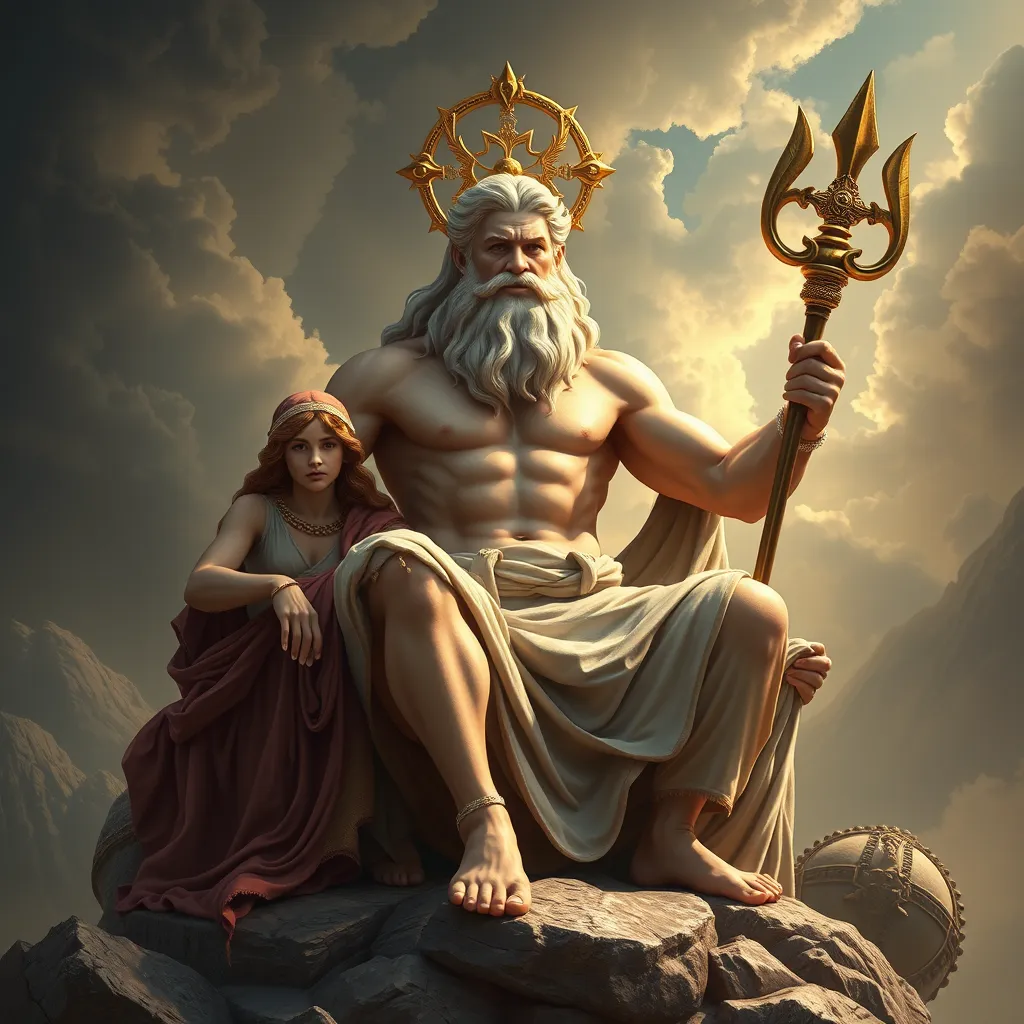Zeus and His Siblings: The Olympian Family Dynamics
I. Introduction
Greek mythology is a rich tapestry of stories that have captivated audiences for millennia. At the heart of these tales are the Olympian gods, powerful deities who resided atop Mount Olympus and ruled over various aspects of existence. Among them, Zeus stands out as the king of the gods, wielding immense power and authority. The familial relationships among these gods are complex and significant, influencing many myths and legends.
II. The Birth of Zeus and His Siblings
The origins of Zeus and his siblings are rooted in the ancient tales of creation. Zeus was born to Rhea and Cronus, the formidable Titan couple. Cronus, fearing a prophecy that one of his children would overthrow him, swallowed his offspring at birth. This dark act set the stage for family dynamics filled with tension and strife.
- Rhea: The mother of the gods, who devised a plan to save her youngest child.
- Cronus: The father, who sought to maintain his power through fear and tyranny.
Rhea, determined to save her last child, hid Zeus in a cave on Mount Ida in Crete. She wrapped a stone in swaddling clothes and presented it to Cronus, who, believing he had consumed his final child, remained oblivious to Rhea’s ruse.
III. The Rise of Zeus
As Zeus grew, he became aware of his destiny and the plight of his siblings trapped within Cronus. With the help of Rhea, he concocted a plan to confront his father. Zeus forced Cronus to regurgitate his siblings: Hestia, Demeter, Hera, Hades, and Poseidon. This act of rebellion sparked the beginning of the Titanomachy, a ten-year war between the Olympians and the Titans.
With the aid of the Cyclopes and the Hecatonchires, Zeus and his siblings emerged victorious, establishing their dominance over the Olympian realm and securing their place as the ruling deities of the Greek pantheon.
IV. The Roles of Zeus’s Siblings
The siblings of Zeus each held significant roles within the pantheon, contributing to the intricate dynamics among the Olympians.
- Hera: The goddess of marriage, often portrayed as jealous of Zeus’s numerous affairs. Her relationship with Zeus is complex, marked by both love and rivalry.
- Poseidon: The god of the sea, known for his tumultuous nature. Poseidon often found himself in competition with Zeus, particularly over the favor of mortals.
- Hades: The god of the underworld, he maintained a more detached role within the family, ruling over the realm of the dead while remaining largely removed from the affairs of Olympus.
V. The Dynamics of Power and Rivalry
Within the Olympian hierarchy, Zeus held the highest position, but this did not prevent conflicts among the gods. The dynamics of power often led to jealousy and rivalry among the siblings.
- Hera and Zeus: Hera’s jealousy over Zeus’s infidelities often caused strife, leading to conflicts that would affect the entire pantheon.
- Poseidon: His rivalry with Zeus for supremacy over the sea and land often resulted in clashes, as both gods vied for the loyalty of mortals.
- Hades: While he was less involved in power struggles, his resentment of being relegated to the underworld created a sense of alienation from his siblings.
VI. The Influence of Zeus’s Relationships
Zeus’s numerous affairs with goddesses and mortal women had profound effects on familial relations and the structure of the pantheon. His relationships resulted in a multitude of offspring, each with their own significance.
- Children of Zeus: Notable offspring include Athena, Apollo, Artemis, Hermes, and Dionysus, each playing critical roles in various myths and legends.
- Impact on Mortals: Zeus’s relationships often intertwined with human affairs, influencing the destinies of both mortals and gods alike.
The complex web of relationships among the gods extended into the mortal realm, affecting everything from fate to divine intervention in human affairs.
VII. Cultural Representations of Zeus and His Siblings
Throughout history, the Olympian family has been depicted in various forms of art and literature, reflecting their significance in Greek culture.
- Ancient Art: Pottery, sculptures, and frescoes often illustrated scenes from the lives of Zeus and his siblings, showcasing their powers and relationships.
- Literature: Epic poems such as Homer’s “Iliad” and “Odyssey” feature the Olympians prominently, highlighting their interactions with both mortals and each other.
- Modern Interpretations: The legacy of the Olympian family continues to inspire contemporary literature, films, and art, often reinterpreting their stories for new audiences.
VIII. Conclusion
The dynamics of the Olympian family, led by Zeus, reveal a rich tapestry of relationships marked by power struggles, rivalries, and complex emotional ties. The lasting impact of Zeus and his siblings in mythology and culture can be seen in their representation across various mediums, from ancient art to modern storytelling.
As we reflect on the complexities of divine relationships among the Olympians, it becomes clear that these narratives not only entertain but also offer profound insights into the nature of power, love, and rivalry—universal themes that resonate across time and cultures.




